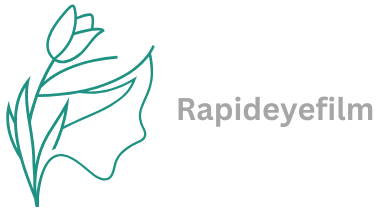Table of Contents
TogglePreparing for a language test can feel like trying to learn how to juggle flaming torches while riding a unicycle. The pressure is on, and the stakes are high. But fear not! With the right strategies and a dash of humor, mastering that test can be a breeze.
Understanding Language Test Prep
Language test prep involves specific strategies and techniques aimed at achieving proficiency in a target language. By focusing on various aspects of language learning, individuals increase their chances of success.
Importance of Language Proficiency
Language proficiency plays a crucial role in personal and professional development. It opens doors to career advancement, enabling individuals to communicate effectively in diverse environments. Academic success often hinges on strong language skills. Students striving for higher education opportunities frequently need to demonstrate their language capabilities through tests. Moreover, effective communication fosters deeper connections across cultures. Enhanced language skills facilitate travel and international experiences, enriching personal lives.
Types of Language Tests
Various language tests assess proficiency levels, catering to different needs and objectives. Standardized tests like TOEFL and IELTS evaluate academic English skills used in higher education. They emphasize reading, writing, listening, and speaking components. Additionally, exams such as Cambridge English focus on practical usage in everyday scenarios. Some tests, like the DELF and DELE, measure proficiency in French and Spanish respectively. Employers may require assessments such as TOEIC to gauge workplace language skills. Understanding the specific requirements of each test helps candidates prepare effectively.
Effective Language Test Prep Strategies
Successful language test preparation includes implementing effective strategies that enhance proficiency and confidence. These strategies focus on clarity of goals and structured study plans.
Setting Clear Goals
Defining specific goals aids motivation and progress tracking. He or she should identify target scores based on test requirements and personal aspirations. Breaking goals into smaller, manageable objectives helps maintain focus. For instance, aiming to improve vocabulary comprehension by 20 words per week creates measurable success. Engaging with practice tests can clarify strengths and weaknesses, shaping future study efforts. Revisiting and adjusting these goals periodically ensures alignment with evolving needs and circumstances.
Creating a Study Schedule
Establishing a study schedule maximizes efficiency and reduces last-minute stress. Allocating dedicated time slots for each language skill—reading, writing, listening, and speaking—enhances comprehensive preparation. He or she might consider using tools like calendars or apps to visualize the study plan. Consistent daily practice, even if just for 30 minutes, yields significant progress over time. Incorporating breaks and self-assessment sessions fosters retention and motivation. Flexibility within the schedule accommodates personal commitments, ensuring a balanced approach to test preparation.
Resources for Language Test Prep
Effective preparation hinges on utilizing the right resources. Various materials exist to enhance language skills and boost test performance.
Recommended Books and Materials
To improve language proficiency, several books offer valuable content. “The Official Guide to the TOEFL Test” provides insights into test formats and practice questions. “Barron’s IELTS Superpack” includes comprehensive study guides, practice tests, and audio tracks. Additionally, “English Grammar in Use” by Raymond Murphy helps clarity with essential grammar concepts. Resources like vocabulary flashcards can also significantly aid retention. Selecting the right materials ensures balanced preparation and targeted practice in weak areas.
Online Platforms and Courses
Numerous online platforms offer structured language courses and practice tests. Websites such as Duolingo provide engaging lessons tailored to various skill levels. Coursera features courses from renowned universities focused on specific tests. EdX also offers free test preparation resources backed by reputable institutions. Moreover, platforms like Magoosh feature targeted practice questions and video tutorials to enhance understanding. Using these digital tools creates a dynamic learning environment conducive to effective language test preparation.
Common Challenges in Language Test Prep
Preparing for a language test poses various challenges that can impact readiness and performance. Recognizing and addressing these obstacles enhances the chances of success.
Dealing with Test Anxiety
Test anxiety often affects performance during language assessments. Symptoms can include nervousness, rapid heart rate, and difficulty concentrating. To manage this stress, practice relaxation techniques such as deep breathing or visualization. Engaging in regular mock tests desensitizes candidates to test conditions. Familiarization with test formats can build confidence and ease fears. Encouraging positive self-talk helps maintain a constructive mindset. Seeking support from peers or tutors provides additional reassurance and motivation.
Time Management Tips
Effective time management plays a crucial role in language test preparation. Allocating specific study times for each skill, such as reading, writing, speaking, and listening, ensures comprehensive coverage. Prioritizing tasks based on difficulty helps streamline the study process. Using timers during practice sessions can simulate real test conditions. Breaks between study periods enhance retention and prevent burnout. Tracking progress through daily or weekly goals keeps motivation high. By maintaining a flexible schedule, individuals can adjust their learning paths as needed.
Preparing for a language test can be daunting but it’s a journey worth taking. With the right strategies and resources in hand, anyone can navigate the challenges and emerge successful. Setting clear goals and creating structured study plans not only enhances proficiency but also builds confidence.
Incorporating practice tests and utilizing effective materials ensures a well-rounded approach to preparation. By managing anxiety and time effectively, candidates can improve their readiness and performance. Mastering a language opens doors to new opportunities and enriches personal and professional lives. Embracing the process with a positive mindset makes all the difference in achieving language proficiency.




